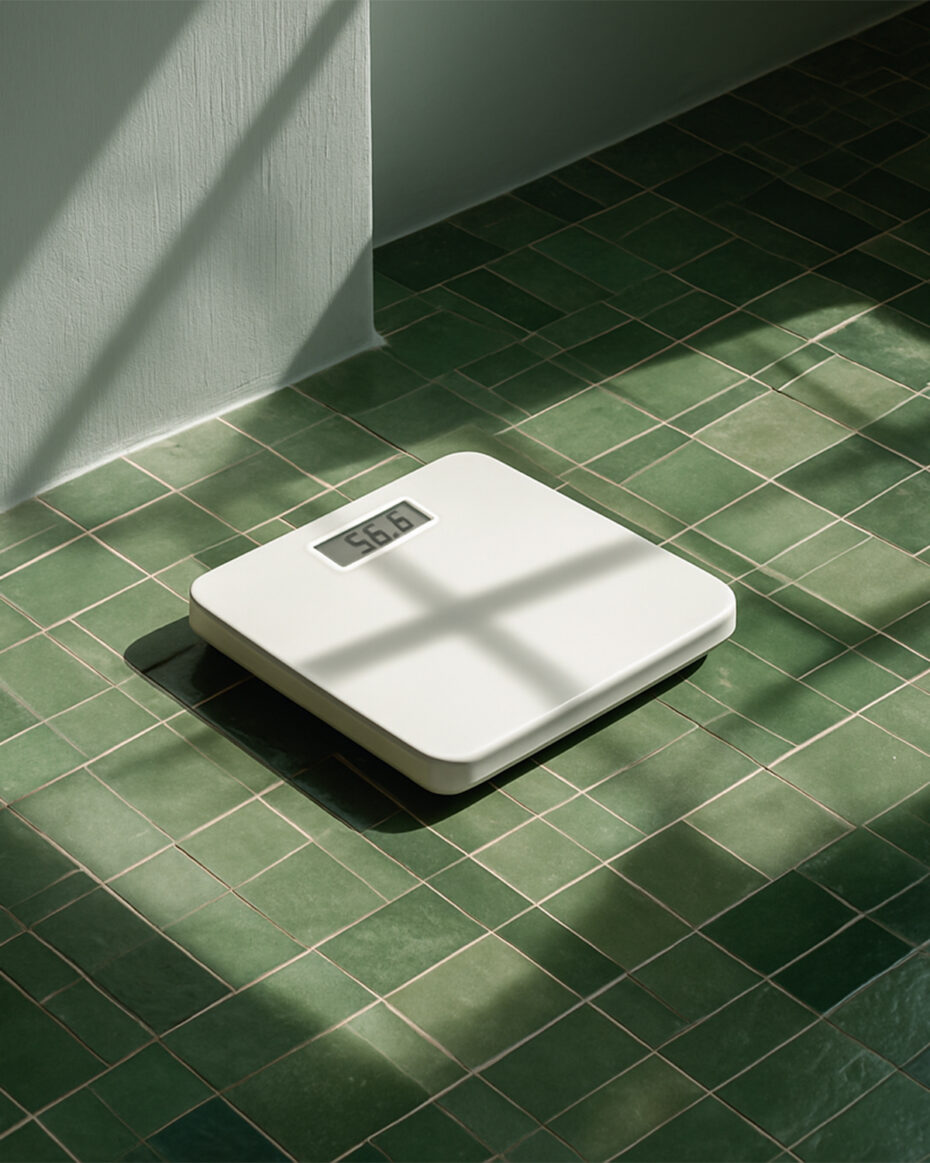
Image: AI generated
Stories
4 Years of Ozempic: What Have We Learned and Where Do We Go From Here?
Wonderflaw’s resident dietitian follows up on the Ozempic craze, and has more than a few concerns.
Text Esen Boyacıgiller
4 years ago a company called Novo Nordisk approved a 20-year old diabetes drug for use as a weight loss drug. Ozempic. You’d be hard-pressed to miss it. The weight-loss drug swept across the globe so quickly that its sales soon surpassed the entire GDP of Denmark, where Novo Nordisk is headquartered. In 2022, the drug generated about $9 billion dollars in sales. For reference, the number 1 selling statin (cholesterol medication) in the world, Lipitor, brought in $13 billion in 2021. And that is for a very well-known drug that has been around for 30 years. Ozempic seemed to be unstoppable.
Ozempic belongs to a class of medications known as GLP-1s or ‘glucagon-like peptide 1’. These are synthetic versions of a naturally occurring hormone in the body. Scientists discovered a way to make this hormone, which suppresses appetite but normally only lasts for 1-2 minutes in the body, last up to a week. Week-long appetite suppression = weight loss. At least for many. Since Ozempic became approved for weight loss (the weight loss version is known as Wegovy, but it’s the same drug), many other GLP-1s have come out including Eli Lilly’s Mounjaro.
I wrote an article about Ozempic for this publication 2 years ago. Since then, its popularity has only grown, but what happens now? What happens when you stop? What happens to the body positivity movement?
GLP-1s have given so many of my clients their lives back. Wegovy has been shown to produce 15% weight loss in 1 year and Mounjaro a whopping 21% of starting weight.
I have been working as a dietitian for 10 years, helping patients lose weight, which has been incredibly rewarding but frankly challenging. Fact is, only about 20% of people manage to keep weight off for at least 1 year, according to the National Weight Control Registry (the registry has more than 10,000 current members). However, anyone who has ever lost weight and gained it back knows how hard it is to keep weight off. Your body will work its hardest to get you back to your starting weight. The majority of my patients try so hard, stick to their meal plans, exercise (which actually turns out doesn’t help much with weight loss), and still never manage to lose weight. It’s disheartening and incredibly frustrating.
Obesity is known to increase your risk of numerous diseases such as Type 2 diabetes, stroke, heart disease, neurologic conditions like Alzheimer’s and some cancers. I work with a very specific demographic; most of my patients have a body mass index over 30 (healthy range is 20-25). They are not trying to lose weight for aesthetics but rather to live more comfortably and hopefully increase their life expectancy. What am I supposed to tell them when they ask me if weight loss is possible? ‘Well, maybe, but it’s really hard and you’ll probably gain it back’?
GLP-1s have given so many of my clients their lives back. Wegovy has been shown to produce 15% weight loss in 1 year and Mounjaro a whopping 21% of starting weight. A few of my patients have lost over 100 lbs. in the last year. Many have cured their binge eating, stopped drinking (a curious side effect of the drugs is that it can dull the desire for addictions like alcohol) and report being free of ‘food noise’ (persistent thoughts of food) for the first time in their lives. The drug has recently also been shown to be heart and kidney protective. Truly fascinating.
“Ozempic is for the rich; body positivity is for the poor”; a cruel saying I saw on Reddit.”
Save this sound like an ad for Ozempic, let’s take a look at some worrisome issues. A major concern clinicians have is what happens when you go off. Almost all of my clients mention wanting to go off the medication when they reach their goal weight. Unfortunately, it doesn’t quite work that way. According to one study, about two-thirds of the weight lost was regained within a year. Once stopped, the food noise comes raging back and many report finding it incredibly hard to resist eating. Some gain more than their starting weight. And many don’t know they are recommended to be used for life. You wouldn’t stop using your insulin because your diabetes was well-controlled any more than you would stop an antidepressant once you were no longer depressed. So why do people want to stop? One reason may be because the stigma of being fat is still there – not being able to lose weight ‘on their own’ is somehow shameful. If obesity is a complicated disease-state involving a network of hormones, then why should we feel bad for taking medicine for it?
‘Ozempic is for the rich; body positivity is for the poor’; a cruel saying I saw on Reddit. Many of my clients are losing access to the medication after a year of being on it because insurance refuses to cover it once they have lost weight. Insurance companies do not see it as a long-term medication and it is expensive. It can cost up to $1200 a month. Many of my patients just cannot afford to pay out of pocket. So now we have helped them lose weight, but they have less muscle mass than they started with (rapid weight loss often causes loss of muscle mass), they are burning fewer calories at rest, and we have taken the medication away. You can guess what happens next.
Which brings us to the body positivity movement. We have worked decades to get to a place where all bodies are accepted and respected; yet for all our progress, obesity is still one of the last accepted biases. Ask any person in a large body (the preferred term) and they will share endless stories of being discriminated against because of their weight. And the ones that lost weight report people being so much nicer to them now. Ouch. I’ll ask the same question I asked in my last article: ‘if everyone can lose weight, does that mean everyone should or will?’ On TikTok and other social media there are hundreds of creators sharing their choice to not use the weight-loss medication saying they are perfectly happy in their larger bodies. And thousands more formerly body-positive or larger creators changing tune and using Ozempic. Notably, influencer Remi Bader lost a lot of weight with gastric bypass and didn’t reveal it to her followers until a year later; many felt duped because she built her platform on being a plus-size creator. However, I have noticed more and more comments from people around me to the tune of, ‘why doesn’t s/he just take Ozempic’? Maybe because they don’t want to? It seems we have taken a giant leap backwards in our fight for body positivity and acceptance.
If Serena Williams, married to a billionaire with access to the best dietitians, doctors, trainers and chefs can’t lose weight, is there any hope for the rest of us?
In our beautiful country here, Turkey, where Ozempic is available over the counter without a prescription, I have seen endless thin women using it to get even thinner. This is not what the medication is intended for but anyone could have guessed that it would be rife for abuse. Some of my friends say anyone should be able to use it. What is so wrong with that? Where do we draw the line for who should be able to use it? What if that thin woman also struggles with food noise and binge eating? What if she has PCOS? Is she not allowed to benefit from this medication? I don’t know the answer.
Olympian Serena Williams has recently become a spokesperson for one of the GLP-1 distributing companies I won’t name and admitted to using the medication. The ad is so playful and upbeat, it makes it look like she is hawking makeup or the latest athleisure, not a medication with serious side effects like nausea, constipation and, in extreme cases, pancreatitis. She said her doctor wanted her to lose weight and she just couldn’t lose the baby weight. No one can know what her health looks like but surely her involvement with the company is going to influence a whole slew of impressionable young men and women to use it. But her using the medication brings up another interesting point: if Serena Williams, married to a billionaire with access to the best dietitians, doctors, trainers and chefs can’t lose weight, is there any hope for the rest of us?
All to say, perhaps surprisingly, I am in favor of these medications. Yes, despite the side effects. But the caveat is: for the right population. If obesity is making it hard for you to move around, live your life, if your diabetes is uncontrolled, if you are at risk for serious heart attacks, if you are totally controlled by your binge eating and food noise, then, yes, this medication might be a life-changing option for you. But if you have a few pounds to lose, want to lose weight for aesthetics, maybe think again. I’m as eager as you to see what we’ll be saying about these medications in 10 years.
Note: I am not a doctor and none of this is to be taken as medical advice.
You can follow Esen on Instagram at @eatwithesen





